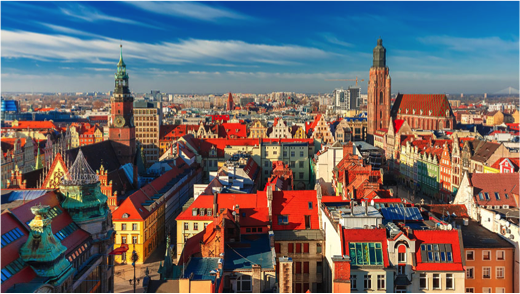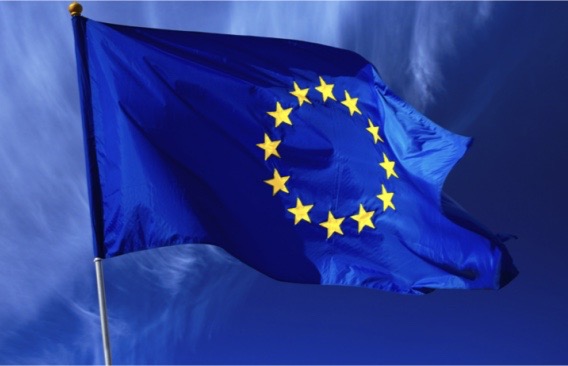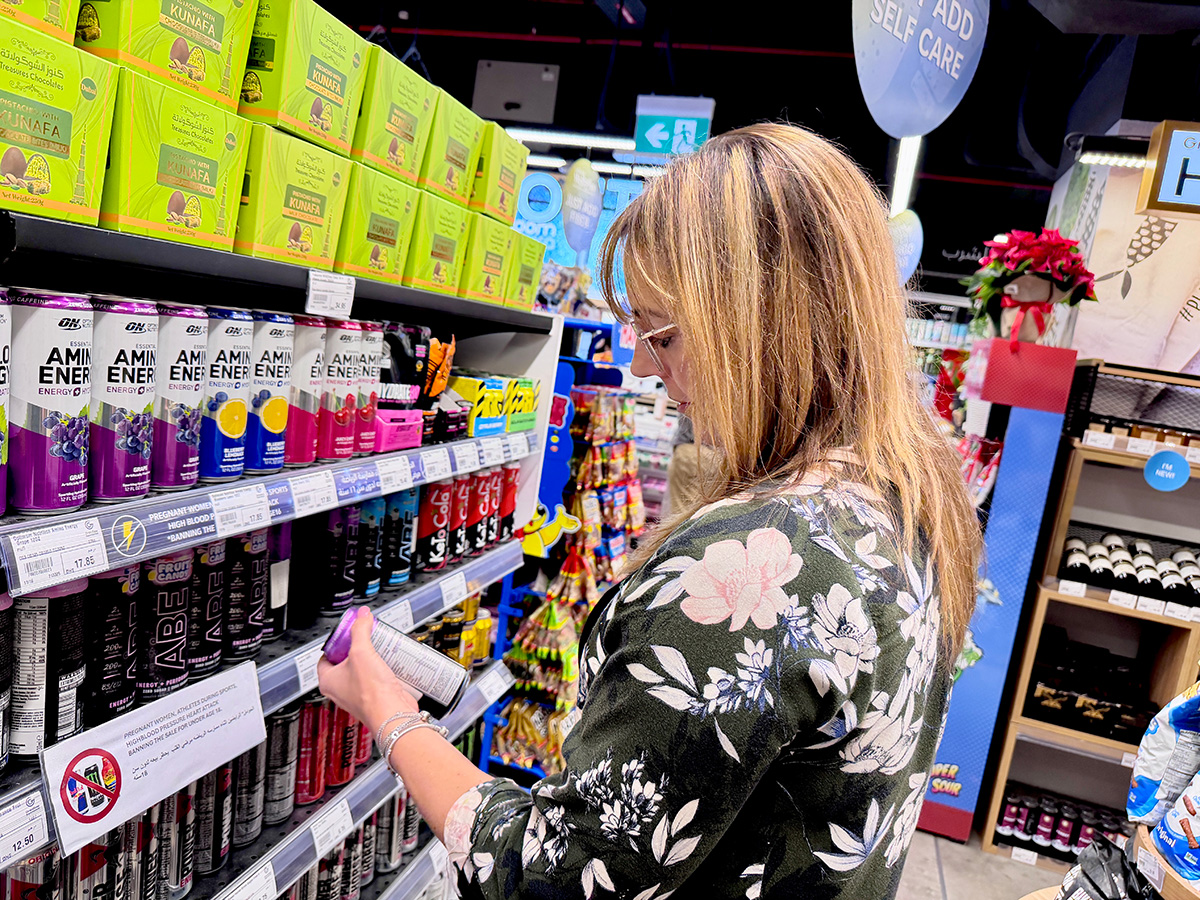1, Diversify your product portfolio for Germany
In Germany, diversify your product portfolio through innovative positioning and target further than the traditional German gym goers
Germany is the biggest market in the European Union from a population perspective with approximately 82 million citizens. In 2017, sports nutrition in Germany increased by 8% in current value terms, to reach 251 million Euros according to Euromonitor. It is expected to reach 322.4 million Euros in 2022. Sports nutrition is no longer a niche market in Germany and sports nutrition manufacturers have managed to catch the eye of the mass market, with consumers paying closer attention to nutritional values and benefits and following global trends towards fitness and healthy lifestyles. This has increased demand for sports nutrition products and as such has had several encouraging repercussions on the market.
First of all, sports nutrition products are now not only sold online or at fitness centres and specialised shops but also widely available at supermarkets, pharmacies and other general outlets. However, specialised shops and especially online retailers remain the leading distribution channels for sports nutrition in Germany at the moment.

Secondly, sports nutrition manufacturers should consider enhancing their portfolios with new products targeting different consumer groups, especially women and fitness beginners, who are increasingly interested in sports nutrition products in Germany. Beginners are now less afraid of diving into sports nutrition and trying out new products, especially because this kind of product is now less seen as detrimental to general health. Women are also taking on the gym and moving away from weight loss towards healthier goals such as increasing their stamina or gaining muscle mass, much like in the UK. Manufacturers and exporters should also expand beyond the gym and offer the German market innovative products targeted towards specific activities such as hiking or mountain biking which are increasingly popular too. There are all sorts of popular outdoor sports that require muscle and mass gain and athletes in these disciplines now turn towards sports nutrition just like bodybuilders do. Interestingly Germany has one of the lowest fitness centre membership rates amongst European countries (with Spain having the highest), allowing room for huge developments of the sports nutrition sector outside of the traditional gym environment and into other outdoor activities as previously mentioned.
Additionally overarching health and wellness trends are influencing the sports nutrition market globally and Germany is no different. Increasing awareness of diabetes and obesity and of the dangers of sugar and fat have led consumers to seek products with reduced levels of sugar, even in product categories such as protein powders or protein ready to drink.This is both true in the UK and in Germany.
The vegan trend is also growing at pace in Germany and affecting sports nutrition. As a result vegan protein bars or vegan protein powders are seeing encouraging growth. Consumers are also putting a higher focus on lower level carbohydrates and calorie intake, with products offering low calories and carbohydrates becoming increasingly attractive.
Finally convenience within the sports nutrition field is becoming increasingly important, allowing for growth for protein ready to drink and leading to innovation in terms of packaging for consumption on-the-go, both in Germany and across Europe, as we become busier and busier. If you offer these kind of products then you should delve further into how the German market, as it could be a great place for you to enter.
2, A craze for protein in Denmark

Known as the “happiest country in the world”, Denmark is characterised by its good quality and level of life. It may be ‘only’ a 5-million-people country but its population has a rather high disposable income compared to other European countries and is more sensitive to health and environmentally-friendly trends than other nations. Gluten free and other free from products as well as vegetarian, vegan and reduced in fat or sugar products have found a very receptive consumer base in Denmark. Sports nutrition has seen growth as well because health concerns have led consumers to exercise more and turn to sports nutrition products to increase their stamina, gain muscle or mass and lose weight. Improvements in the Danish economy have contributed to a raise in disposable income also leading to growth in the sector. But the main characteristic and source of opportunities for international exporters of sports nutrition is the Danes’ absolute passion (some might even say obsession) for protein. They do not only invest in sports protein products such as powders and bars or drinks, they also enjoy products such as protein ice cream, protein oats or protein juices as part of a balanced diet and not only for sports performance purposes. This encourages sports nutrition manufacturers to enter Denmark with premium, high quality products and varied positioning following free from and vegan trends and also leads manufacturers to diversify their offer, widen their ranges with all sorts of everyday products with added protein, thus targeting a wider consumer base and not only athletes.
So if you have a protein product ready for the Danes to enjoy then this should certainly be a market to target for you! (And at Bolst Global we have a growing network of contacts and connections in Denmark to help you on your way )
#3 Advantageous Polish legislation

Poland is (maybe surprisingly) a very good market for sports nutrition products. It amounts to 108.60 million EUR in 2017 (PLN 456 million) with a 17% value growth in 2017. Between 2017 and 2022, it is expected to grow a further 65.9%. The rising popularity of exercise and sport drive strong growth in all product categories, with sports protein powders being the most popular products. The one advantage Poland offers to international sports nutrition exporters is that it is an easy market to enter because of lack of legislation around such products. Indeed, they are currently considered as normal food and not treated any differently from other food product categories. They do not bear special restrictions or rules unlike in some other countries. And because they are treated as food products, they are widely distributed: general retailers give shelf space for sports protein powders and bars just like they would for regular snacks. Thus, finding a distributor in Poland can be less tricky than in France or Germany for example. General retailers are a good option just as specialised shops, online sports retailers or fitness clubs. So find a reliable partner in Poland and start reaping some rewards of that partnership!
#4 France, a difficult choice of distribution channel

With 66 million inhabitants and a reasonably high disposable income per capita, France is a significant Western European market but it is nonetheless a challenging one for sports nutrition exporters. The main problem in France for sports nutrition manufacturers is the question of the distribution channel. France has many successful and huge retailers such as Carrefour, Super U, Auchan, Casino, E. Leclerc or Intermarché. For food and drink exporters, a country with so many national retailers is quite appealing because it makes the choice and search of channel easier. For the particular niche of sports nutrition however, these retailers are no use, as they do not offer any (or very little) sports nutrition. In France, protein powders and other sports nutrition products are considered a very specific and distinct category that cannot be directly linked to proper food and drink products and that attract only a minority of consumers. As such, they are not distributed in general grocery retailers. Pharmacies and parapharmacies offer food supplements, essentially vitamins and minerals, as well as ranges of personal care products but most of the time they do not offer sports nutrition products, and when they do their ranges are very limited.
In order to understand this market, it is important to know that these products have for a long time been distrusted and regarded as unhealthy, unnecessary or even dangerous by the French consumers who have associated them time and again with doping. Mentalities are now shifting, influenced by global health and fitness tendencies, inducing promising growth in the sector and encouraging news for foreign exporters. Yet, this long lack of trust for these products partly explains why general retailers and pharmacies/parapharmacies offer barely any sports nutrition products and why it is not an easy market to crack from a sports nutrition point of view.
The best distribution channels for sports nutrition exporters are specialised shops and online retailers. There are many specialised shops all over the country, some are national chains with many stores such as Decathlon or Intersport, others are smaller chains with some shops in one specific geographical region and others still are just one isolated shop in one city. This might sound very discouraging at first but only by targeting the biggest national chains and the medium-size regional ones you will get good distribution for your product in the whole country. And when it comes to individual shops, chances are that several of them use the same intermediary or distributor. Calling or emailing these shops is a time-consuming and tiring job but you would be wrong to dismiss it as a waste of time because unearthing a distributor is what will ultimately get your product sold in many small individual outlets and increase your sales significantly. So don’t give up, but maybe take on a French speaker to support you with this if you decide this is the market you want to get into!
Finally and another way to enter the market is via the digital channel. France has many online retailers and internet retailing is a major channel in this sector. Many companies have their own branded website but specialised online retailers exist as well. The internet has the advantage of offering great quality-price ratios, with regular promotions, the possibility to buy in bulk and also many details and information on the products which reassures French consumers. This may also be a channel worth exploring.
At Bolst Global we support sports nutrition and protein brands to export into both European and Middle Eastern markets. For further information, please complete the contact form below. Details of the range of services we offer, can be found here




